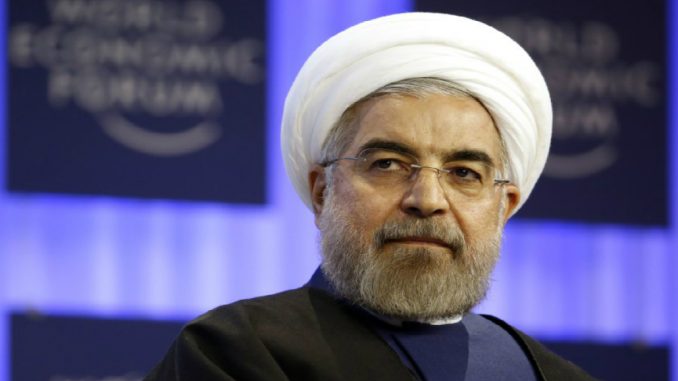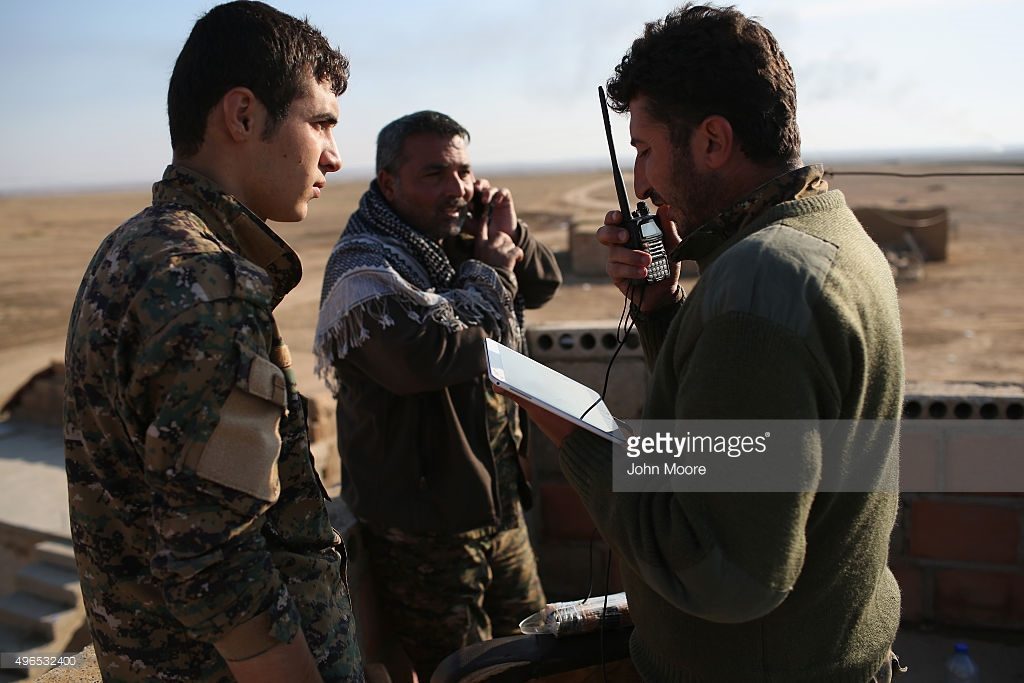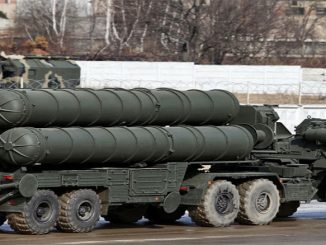
Iranian president Hassan Rouhani said the new US president, Donald Trump, will not be bale to cancel the nuclear deal with Tehran or even renegotiate its terms again after Trump has threatened previously to do so.
Barack Obama, The former US leader, was behind the historic Iran nuclear deal with P5+1 powers, agreed upon last year, which saw Tehran agree to amend its nuclear output in order to lift all nuclear-related economic sanctions, freeing up tens of billions of dollars in oil revenue and frozen assets.
After lifting the sanctions, Iranian president Hassan Rouhani visited Europe and made deals that worth billions of dollars. European companies started looking for investment opportunities in the growing Iranian market.
The Iranian government also sought deals with western companies to develop and maintain its natural resources such as Oil and Gas. The last deal was signed on 8 November with the French company, Total, to further develop its part of the world’s largest gas field, avoiding the US sanctions by financing the deal with euros, to become the first western energy company to sign a major deal with Tehran since the lifting of international sanctions earlier this year.
However, Trump’s election might change the whole game and threaten the development that was built in the past months.
Trump has said during his election campaign that the deal as “disastrous” and said it would be his “number one priority” to dismantle it.
“It is hard to believe a president of the United States would actually put his name on an agreement with the terrorist state Iran that is so bad, so poorly constructed and so terribly negotiated that it increases uncertainty and reduces security for America and our allies, including Israel,” Trump said last year.
“When I am elected president, I will renegotiate with Iran — right after I enable the immediate release of our American prisoners and ask Congress to impose new sanctions that stop Iran from having the ability to sponsor terrorism around the world,” Trump added in the same statement.
Trump can’t cancel the deal
At a news conference marking the first anniversary of the lifting of sanctions on Tuesday, Iran’s president was asked about Trump’s comments.
“The president-elect has shown he is not happy about the nuclear deal, calling it the worst deal ever signed. This is only empty talk,” Rouhani told a news conference on the anniversary of the removal of sanctions.
“I don’t think he can do much when he goes to the White House,” added Rouhani.
“These are all slogans and I deem it unlikely that he would act on it once he enters the White House. Since this is not a bilateral agreement, it is not up to him to say whether he likes it or dislikes it.”
Rouhani said he was hopeful about the future of the nuclear deal, which has been buttressed by a U.N. Security Council resolution, calling talk about renegotiation “meaningless”.
“I am optimistic about the future of the nuclear deal … (It) is good for the United States, but he (Trump) doesn’t understand,” said Rouhani, whose remarks were broadcast live on state television.
Last year after the election results were known, Rouhani made similar comments.
“Iran’s understanding of the nuclear deal was that the accord was not concluded with one country or government but was approved by a resolution of the U.N. Security Council, and there is no possibility that it can be changed by a single government,” he said on Iran state television.
Who will benefit of canceling the deal?
The nuclear deal was divisive in Iran, with hardliners opposed to better relations with the West arguing that pragmatist President Hassan Rouhani was giving up too much of the country’s nuclear infrastructure for too little relief.
Iranian Supreme Leader Ali Khamenei regularly criticizes the United States and the deal, saying it should not be trusted and it wasn’t doing its part of the deal.
Khamenei has already promised to “set fire” to the nuclear deal if the West violates it. and has repeatedly complained it has not received benefits promised.
Trump’s change of the US policy would just prove him right and will strengthen his hold on the Iranians’ minds, who will just see the west as the devil their leader always spoke about.
“The big winner in the aftermath of a Trump victory is Iran’s Supreme Leader,” said Suzanne Maloney, a foreign policy expert at the Brookings Institution.
“He will have the most cartoonish American enemy, he will exult in the (hopefully brief) crash of the American economy, and he will be able to walk away from Iran’s obligations under the JCPOA while pinning the responsibility on Washington.”
The hardliners in Iran refused also the nuclear deal and the trade ties with the west.
Hardliners believe it is offering overly generous terms to overseas energy companies that can exploit Iran’s natural resources.
The Iranian Revolutionary Guards and their conservative supporters remained always distrustful of the West, professing no need for foreign companies and emphasizing security and social conservatism over international engagement. They hew to what Supreme Leader Ali Khamenei calls a “resistance economy” of self-reliance.
During years of sanctions that kept away many foreign companies, the Islamic Revolutionary Guard Corps stepped into the void, building a network of companies that came to dominate Iranian industries from energy to telecommunications.
The Revolutionary Guards first secured an economic foothold after the Iran-Iraq war of the 1980s when Iran’s clerical rulers allowed them to invest in leading Iranian industries. Their economic influence grew after former guardsman Mahmoud Ahmadinejad was elected president in 2005.
After lifting the sanctions, Rouhani tried to limit their dominance in the economic area.
The Revolutionary Guards should “be limited to those areas that the private sector is incapable of or uninterested in,” a spokesman for the Rouhani government has previously said.
“The government believes that the private sector should gain the opportunity to present its capability. The government itself shouldn’t compete with it. Other sectors like [the IRGC] should not compete with it.”
But Trump’s victory can just put the economy in their hands again
“With Trump’s victory, Iran needs the Guards … they will gain more economic and political power,” the official said.
Tehran could turn to the Guards for help with the economy if Western companies decide to stay away from Iran, and their hands will be over everything. They will use this dominance as a tool to finance their intervention in the region. Trump will be giving them just the present they always needed.



